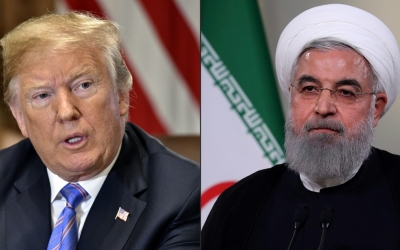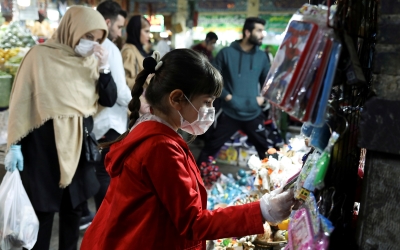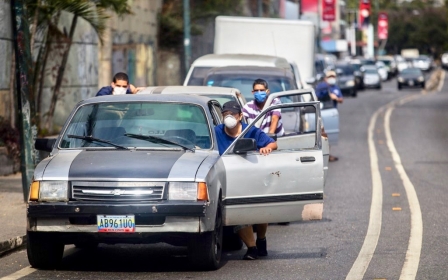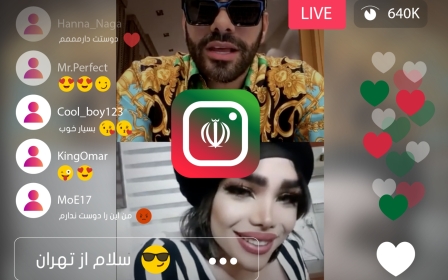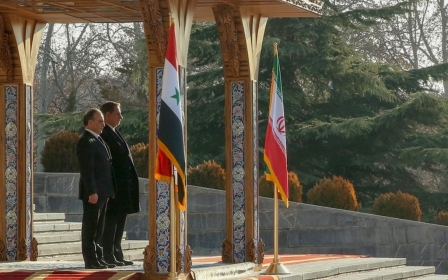US to end sanction waivers that allowed some countries to work at Iran nuclear sites
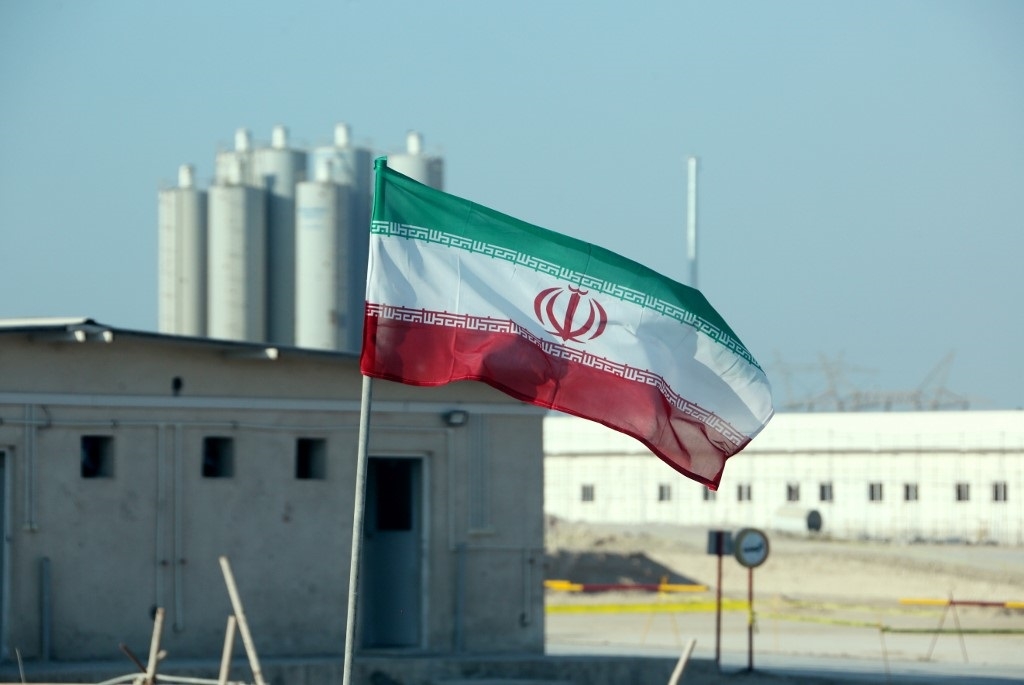
The US has decided to end sanctions waivers that allowed Russian, Chinese and European firms to work at certain Iranian nuclear sites under the 2015 Iran nuclear deal.
US Secretary of State Mike Pompeo said on Wednesday that Washington was ending the last remaining sanctions waivers enshrined in the Obama-era Iran nuclear deal, eliminating key provisions meant to discourage Tehran's nuclear ambitions.
"The Iranian regime has continued its nuclear brinkmanship by expanding proliferation sensitive activities," Pompeo said in a statement.
The US's top diplomat also accused Iran of "nuclear extortion" and said the move "will lead to increased pressure on Iran and further isolate the regime from the international community".
The waivers had allowed international companies to work on Iran's civil nuclear facilities without being punished by US sanctions.
New MEE newsletter: Jerusalem Dispatch
Sign up to get the latest insights and analysis on Israel-Palestine, alongside Turkey Unpacked and other MEE newsletters
Wednesday's decision, first reported by the Washington Post, is said to apply to work at Iran's Arak heavy water research reactor and the Tehran Research Reactor, a five-megawatt apparatus that was supplied to Iran in 1967.
The Arak reactor, located 240km (150 miles) southwest of Tehran, had it's core removed in 2016 and was filled with cement as part of Tehran's obligations under the 2015 nuclear deal with world powers.
Since then, Iran has repeatedly insisted that the facility is for peaceful medical research activity only.
Pompeo also said that the US was extending a separate waiver covering international support to the Bushehr nuclear power plant for 90 days to "help ensure the safety of operations at the plant", which is located along the Gulf.
The waivers had been renewed every 60 days since Trump pulled out of the Joint Comprehensive Plan of Action (JCPOA), otherwise known as the Iran nuclear deal, in 2018.
Since leaving the deal, the US has imposed punishing sanctions on Iran as part of its "maximum pressure campaign" to prevent Tehran from investing in its nuclear programme as well as from financing armed groups in the Middle East.
US sanctions Iranian scientists
Pompeo also announced that the US was imposing sanctions on two Iranian scientists, Majid Agha'i and Amjad Sazgar, who he claimed are leaders of Iran's nuclear enrichment program.
"Iran's scientists need to make a choice: pursue peaceful work outside of the proliferation realm, or risk being sanctioned," he wrote on Twitter.
Despite rising tensions between Washington and Tehran that have led to an escalation in military confrontations, the US says sanctions against Iran have been a success. Recently, the US alleged that Iranian sanctions were forcing the country to scale back its military presence in Syria, which Iran denies.
Still, several US politicians, rights groups, and activists have called on the administration to temporarily lift its sanctions amid the coronavirus pandemic.
Iran has also made repeated calls on the international community to reject US sanctions, which it says are impeding Tehran's fight against the virus.
While the Trump administration has said there are no sanctions on medicines or humanitarian assistance going to Iran, many banks and companies have refrained from taking part in any such ventures out of fear of getting caught up in US secondary sanctions.
According to Human Rights Watch, the unilateral US sanctions have devastated Iran's flagging health-care system, hindering the ability of ordinary Iranians to access health services.
Middle East Eye delivers independent and unrivalled coverage and analysis of the Middle East, North Africa and beyond. To learn more about republishing this content and the associated fees, please fill out this form. More about MEE can be found here.


